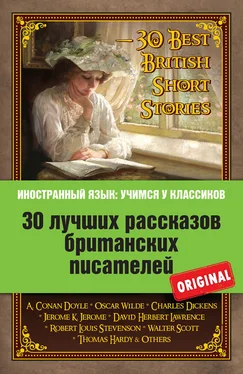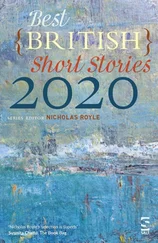* * *
One of the most regular and absorbed spectators at the Aztec Street inquiry was old Stephen Garrit. Stephen Garrit held a unique but quite inconspicuous position in the legal world at that time. He was a friend of judges, a specialist at various abstruse legal rulings, a man of remarkable memory, and yet – an amateur. He had never taken sick, never eaten the requisite dinners, never passed an examination in his life; but the law of evidence was meat and drink to him. He passed his life in the Temple, where he had chambers. Some of the most eminent counsel in the world would take his opinion, or come to him for advice. He was very old, very silent, and very absorbed. He attended every meeting of the Aztec Street inquiry, but from beginning to end he never volunteered an opinion.
After the inquiry was over he went and visited an old friend at the London Survey Office. He spent two mornings examining maps. After that he spent two mornings pottering about the Strand, Kingsway, and Aldwych; then he worked out some careful calculations on a ruled chart. He entered the particulars in a little book which he kept for purposes of that kind, and then retired to his chambers to study other matters. But before doing so, he entered a little apophthegm in another book. It was apparently a book in which he intended to compile a summary of his legal experiences. The sentence ran:
‘The basic trouble is that people make statements without sufficient data.’
Old Stephen need not have appeared in this story at all, except for the fact that he was present at the dinner at Lord Vermeer’s, where a rather deplorable incident occurred. And you must acknowledge that in the circumstances it is useful to have such a valuable and efficient witness.
Lord Vermeer was a competent, forceful man, a little quick-tempered and autocratic. He came from Lancashire, and before entering politics had made an enormous fortune out of borax, artificial manure, and starch.
It was a small dinner-party, with a motive behind it. His principal guest was Mr. Sandeman, the London agent of the Ameer of Bakkan. Lord Vermeer was very anxious to impress Mr. Sandeman and to be very friendly with him: the reasons will appear later. Mr. Sandeman was a self-confessed cosmopolitan. He spoke seven languages and professed to be equally at home in any capital in Europe. London had been his headquarters for over twenty years. Lord Vermeer also invited Mr. Arthur Toombs, a colleague in the Cabinet, his prospective son-in-law, Lowes-Parlby, K.C., James Trolley, a very tame Socialist M.P., and Sir Henry and Lady Breyd, the two latter being invited, not because Sir Henry was of any use, but because Lady Breyd was a pretty and brilliant woman who might amuse his principal guest. The sixth guest was Stephen Garrit.
The dinner was a great success. When the succession of courses eventually came to a stop, and the ladies had retired, Lord Vermeer conducted his male guests into another room for a ten minutes’ smoke before rejoining them. It was then that the unfortunate incident occurred. There was no love lost between Lowes-Parlby and Mr. Sandeman. It is difficult to ascribe the real reason of their mutual animosity, but on the several occasions when they had met there had invariably passed a certain sardonic by-play. They were both clever, both comparatively young, each a little suspect and jealous of the other; moreover, it was said in some quarters that Mr. Sandeman had had intentions himself with regard to Lord Vermeer’s daughter, that he had been on the point of a proposal when Lowes-Parlby had butted in and forestalled him. Mr. Sandeman had dined well, and he was in the mood to dazzle with a display of his varied knowledge and experiences. The conversation drifted from a discussion of the rival claims of great cities to the slow, inevitable removal of old landmarks. There had been a slightly acrimonious disagreement between Lowes-Parlby and Mr. Sandeman as to the claims of Budapest and Lisbon, and Mr. Sandeman had scored because he extracted from his rival a confession that, though he had spent two months in Budapest, he had only spent two days in Lisbon. Mr. Sandeman had lived for four years in either city. Lowes-Parlby changed the subject abruptly.
‘Talking of landmarks,’ he said, ‘we had a queer point arise in that Aztec Street inquiry. The original dispute arose owing to a discussion between a crowd of people in a pub as to where Wych Street was.’
‘I remember,’ said Lord Vermeer. ‘A perfectly absurd discussion. Why, I should have thought that any man over forty would remember exactly where it was.’
‘Where would you say it was, sir?’ asked Lowes-Parlby.
‘Why to be sure, it ran from the corner of Chancery Laneand ended at the second turning after the Law Courts, going west.’
Lowes-Parlby was about to reply, when Mr. Sandeman cleared his throat and said, in his supercilious, oily voice:
‘Excuse me, my lord. I know my Paris, and Vienna, and Lisbon, every brick and stone, but I look upon London as my home. I know my London even better. I have a perfectly clear recollection of Wych Street. When I was a student I used to visit there to buy books. It ran parallel to New Oxford Streeton the south side, just between it and Lincoln’s Inn Fields.’
There was something about this assertion that infuriated Lowes-Parlby. In the first place, it was so hopelessly wrong and so insufferably asserted. In the second place, he was already smarting under the indignity of being shown up about Lisbon. And then there suddenly flashed through his mind the wretched incident when he had been publicly snubbed by Justice Pengammon about the very same point; and he knew that he was right each time. Damn Wych Street! He turned on Mr. Sandeman.
‘Oh, nonsense! You may know something about these eastern cities; you certainly know nothing about London if you make a statement like that. Wych Street was a little further east of what is now the Gaiety Theatre. It used to run by the side of the old Globe Theatre, parallel to the Strand.’
The dark moustache of Mr. Sandeman shot upwards, revealing a narrow line of yellow teeth. He uttered a sound that was a mingling of contempt and derision; then he drawled out: ‘Really? How wonderful – to have such comprehensive knowledge!’
He laughed, and his small eyes fixed his rival. Lowes-Parlby flushed a deep red. He gulped down half a glass of port and muttered just above a whisper: ‘Damned impudence!’ Then, in the rudest manner he could display, he turned his back deliberately on Sandeman and walked out of the room.
* * *
In the company of Adela he tried to forget the little contretemps. The whole thing was so absurd – so utterly undignified. As though he didn’t know! It was the little accumulation of pin-pricks all arising out of that one argument. The result had suddenly goaded him to – well, being rude, to say the least of it. It wasn’t that Sandeman mattered. To the devil with Sandeman! But what would his future father-in-law think? He had never before given way to any show of ill-temper before him. He forced himself into a mood of rather fatuous jocularity. Adela was at her best in those moods. They would have lots of fun together in the days to come. Her almost pretty, not too clever face was dimpled with kittenish glee. Life was a tremendous rag to her. They were expecting Toccata, the famous opera-singer. She had been engaged at a very high fee to come on from Covent Garden. Mr. Sandeman was very fond of music. Adela was laughing, and discussing which was the most honourable position for the great Sandeman to occupy. There came to Lowes-Parlby a sudden abrupt misgiving. What sort of wife would this be to him when they were not just fooling? He immediately dismissed the curious, furtive little stab of doubt. The splendid proportions of the room calmed his senses. A huge bowl of dark red roses quickened his perceptions. His career… The door opened. But it was not La Toccata. It was one of the household flunkies. Lowes-Parlby turned again to his inamorata .
Читать дальше
Конец ознакомительного отрывка
Купить книгу












